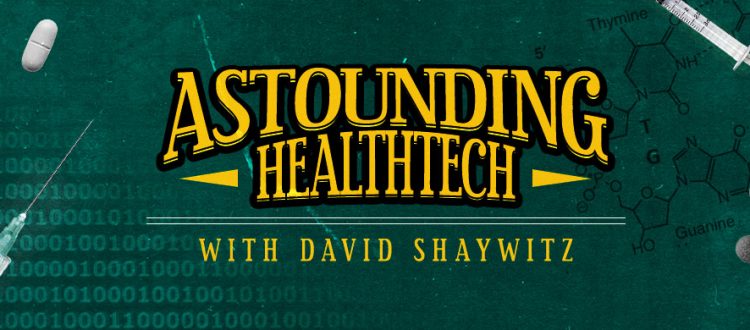Scientists Love Data – And Data Reveal Most People Prefer Anecdotes

David Shaywitz
The unreasonable effectiveness of personal narrative – and what it means for persuasion and health
The goal of “alternative facts,” is “to flood the zone with sh*t,” as former Trump advisor Steve Bannon notoriously explained to the author Michael Lewis. The idea is to persuade us it’s just too difficult to know what to believe about anything.
This “manufactured nihilism,” as Vox’s Sean Illing memorably described it, enables us to default to our own instincts and inclinations. If you’re inclined to believe that COVID is a hoax, say, the consequences can be lethal.
Manufacturing nihilism isn’t a heavy lift: as economist Tim Harford reviews in his new book, The Data Detective, lots of behavioral research suggests we’re easily persuaded to doubt information we don’t want to believe.
For instance, when the tobacco industry was initially attacked after robust clinical data demonstrated their product was deadly, for instance, it launched a deliberate public relations campaign to muddy the water. The facts were uncertain, the companies argued.
Many dedicated smokers, sadly, were all too eager to believe this fundamentally bogus message.
*****
As if facts weren’t in enough trouble already, new research, published in January in Proceedings of the National Academy of Sciences (PNAS), demonstrates that when it comes to moral or political issues, we are more likely to respect an argument based on personal experience than one rooted in data.
“In moral disagreements,” the authors report, “experiences seem truer than facts.”
They continue,
“Across many studies, basing one’s stance on personal experiences (versus facts) seems to make people appear more rational to opponents. We suggest that this effect is because personal experiences are unimpugnable; first-hand suffering may be relatively immune to doubt.”
Especially as a scientist, it’s hard not to feel demoralized by these results. A cornerstone of science is the importance of not confusing anecdotes with data – you can actually buy a “scientist shirt” on Amazon bearing the motto, “The plural of anecdote is not data.”
Yet now scientists have data demonstrating that anecdotes tend to be more persuasive.
Adding insult to injury, the final experiment reported by the researchers compared a subject’s reactions to:
- a layperson sharing a personal anecdote
- a scientist reporting data
- and a layperson reporting facts
The result?
“[P]articipants saw the personal experiences of the layperson as the ‘truest,’ followed by the scientific research, and then facts provided by a layperson. That people see one person’s anecdotal experience as truer than the conclusion of scientific research is striking.”
Striking, and also scary, because it means truth is effectively defined by the most compelling personal story.
*****
In The Black Swan, Nassim Taleb introduces us to “narrative fallacy,” a cognitive deception “associated with our vulnerability to overinterpretation and our predilection for compact stories over raw truths.”
It’s hardly news that we are drawn to stories, of course. But motivated by behavioral researchers such as Daniel Kahneman, we’ve started to quantify the remarkable strength of this attraction, and to reach for a more productive response than casual despair.
The power and relatability of anecdote might be used to bridge divergent perspectives, the authors of the January PNAS paper write, noting their results can be read as offering guidance for engaging those who are on the opposite side of fraught issues.
Rather than trying to lead with facts, the authors suggest, “personal experiences might be deployed early in conversations to first build a foundation of mutual respect, and then facts could be introduced as the conversation moves to policy specifics.”
A similar strategy was used in the 2020 election by Republican Voters Against Trump (RVAT), which sought to encourage GOP defections not by presenting data on, say, the deficit under Trump or the number of lives lost to COVID, but rather, by letting people tell their own stories. RVAT encouraged disaffected Republicans to upload raw video selfies – relatable and compelling personal stories about why they opposed Trump. RVAT would then curate and promote the best videos, in hopes that these personal anecdotes would resonate with other disaffected Republicans.
*****
It’s hard – especially as a scientist – to escape the sense that persuasion should be based on a common set of facts and shared standards for evaluation – the premise of the scientific method – rather than accessible anecdotes. Yet at a time when a quarter of unvaccinated adults say they don’t want to get immunized, and most Republican voters continue to insist the election was stolen – it’s clear that facts alone aren’t cutting it.
Purists may need to take a page from the RVAT playbook, and lean into personal narratives to convey the vital lessons suggested by the data.
Perhaps some Republicans would be moved by the raw, personal stories of Trump-leaning state election workers — ordinary people — who describe their own, meticulous efforts to ensure the vote was free and fair, even if they were disappointed by the outcome.
Similarly, efforts to encourage vaccination will need to go beyond the recitation of the (extraordinarily reassuring) safety and efficacy data, especially given the tendency of any rare adverse event to be widely publicized by the media and amplified by critics.
To counter this, a marketing expert advised in a recent New England Journal of Medicine,
“[V]accine communications teams should proactively spread their own ‘cases’ in addition to statistics. News briefings or websites could include real individual success stories — a Georgia family going out for ice cream after being vaccinated, perhaps, or Indiana retirees joyfully visiting neighbors 10 days after receiving the vaccine. Such stories, however banal, can help counteract the shock value of a few bad-effect stories.”
At best, these approaches are likely to change only a few minds. It’s notoriously difficult to move people off the comfort of their prior assumptions.
But even a few percentage points can make a big difference, both in deciding a close election and in blunting the spread of a deadly contagious virus.
If leaning on stories feels unseemly or unscientific, remember that if you want to persuade skeptics, the data are clear: in a world of alternative facts, the personal narrative is king.





